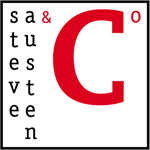
Felix Meritis neemt actief deel aan de werkgroep Audience Participation van het Platform Access to Culture ingesteld door de Europese Commissie in het kader van de bevordering van de dialoog met de civil society.
Nog juist voor de zomer werd het resultaat van de beraadslagingen in deze werkgroep aan het Platform en de Europese Commissie gepresenteerd. De werkgroep is tot de conclusie gekomen dat het begrip audience development in de huidige tijd onmiskenbaar raakvlakken heeft met burgerschap. Wat kan burgerschap betekenen voor de culturele sector en vice versa? Daarover ging de presentatie waarvan de integrale versie te vinden is op de website van Felix Meritis.
Towards a cultural component of citizenship
The role of the citizen in building Europe
CITIZENSHIP – new legal windows
The concept of Union Citizenship was established as a legal concept by the Treaty of Maastricht in 1992. It marked a clear break from the market logic where individuals were mostly seen as consumers. The Union Citizenship is a status conferring on all nationals of one of the Member States an additional set of rights to those attached to their own national citizenship. It is intended to help create amongst individual citizens a sense of belonging to the EU and having a genuine European identity, reflecting the core founding values of the EU: human dignity, freedom, democracy, equality, the rule of law and respect for human rights.
The Lisbon Treaty offers citizens and civil-society organisations for the first time a legal opportunity to influence, control, discuss and support EU measurements and policies. The Lisbon Treaty (entered into force on December 1, 2009) introduces fundamental changes in regard to the role of the citizen and civil-society organisations. Article 11 gives the EU institutions the obligation to “give citizens and representative associations the opportunity to make known and publicly exchange their views in all areas of Union action”
Furthermore citizens’ position is now legally fostered by the charter of fundamental rights.
Through this legal framework, the individual citizen of any member-state now has, whether he wants it or not, an additional legal identity next to the existing national one. The EU became a Union of Member States and citizens.
CITIZENSHIP – new political windows
Partly as a result of the disastrous outcome of the referendums in France, the Netherlands and Ireland, the attention of the Commission given to issues such as citizenship has increased, although the concept of cultural citizenship is scarcely out of the egg.
In the fore months of the Lisbon Treaty, governments of Member States had to deal with the question of how the role of citizens in the Treaty would have to be defined. (A new Commissioner for justice, fundamental rights and citizenship at the European Commission reflects the political agenda defined by Commission President Barroso’s 2020 agenda where he sets the reinforcement of EU citizenship and participation as one of the 5 priorities for the next Commission). Even if there is a legal framework that guarantees EU citizenship rights the Commission feels that there remains a gap between the applicable legal rules and the practical reality citizens are faced with in their daily life, in particular in cross-border situations.
If citizenship is to be taken seriously, one needs to form an opinion on the circumstances and processes in which citizenship is established. These are by definition cultural processes.
The next question then is: what is the role of culture in the political unification process in Europe and what is cultural citizenship exactly?
IDENTITY– a side-window connected
The recurring and always impassioned identity debate is proof that from a cultural perspective citizens are greatly involved on one point at least. There is no longer a way for either a national government or the European Union to impose a generally accepted definition of connectedness, of patriotism if you will, on its citizens. It seems the time of competition between the citizens of Member States based on national clichés is definitely over.
The logical consequence of this is a general feeling of unease. After all, everyone wants to belong to something somewhere. The increasing interest in religion, as well as for retrograde political movements, is proof of this. Whether we like it or not, we are living in the age of the citizen, the citizen on the way to a new balance with his or her surroundings and the state.
How is citizenship in a cultural sense (of participation in civil and expressive life) hampered by irrational notions of bureaucratic identity based on place of birth? Why do cultures have to be falsely aligned to one tier of governmental representation, the nation state, when individuals themselves operate on multiple levels – family, local, regional, national, continental and global? The concept of cultural citizenship based on multiple identities enables individuals to meet and interact, to bear responsibility for their civility, to offer each other work and prospects, to feel free affection, to become politically active and supportive at the same time. Most of all it allows the inevitable irritations of human contact not to escalate into generic antipathy; for people to always see each other as individuals, not as representatives of an abstract label which they mistrust.
CULTURE
The idea of culture playing a more prominent role in local, regional, national and European processes than before, found more and more acceptance.
By implementing the new rules of the game, the EU can no longer be seen as primarily an economic project. Inclusion of citizens’ aspirations in ALL fields of policy changes the paradigm from economic to cultural notions.
When citizens have common cultural aims, even if the cultures themselves are different, the decentralised cross-fertilising of ideas becomes a way for active citizens to develop a common Europe while keeping their own sense of who they are intact. By removing labels, except those individuals choose to express themselves, we remove the need for protection against outsiders who mean us no harm.
THE WORKING GROUP AUDIENCES PARTCIPATION
Everywhere in Europe the consciousness of the role of culture is present as proves the response of many gatherings in numerous places all over Europe and neighboring countries.
The consultation-process with ‘civil-society’ – semi unionist organisations (the European Agenda for Culture is a first step taken by the European Commission in the cultural field) but also and in the first place ‘individuals’ has to be introduced and developed. Going beyond this consultation habit of membership organisations, the working group will go into the exchange with individual citizens active in arts and cultural life.
The atelier series strives to be the beginning of involving individuals, from artists, to audiences and cultural initiatives in a debate to give input to an emerging concept of cultural citizenship and shape the discourse on a European level. Through the set up of ateliers in different cities in Europe, new ideas for local, regional and national governments as well as the European Parliament, the European Council and the Commission will be generated through the contribution of a list of speakers that concentrate on the future of citizens’ involvement and responsibility. Speakers for defining the cultural component of citizenship are from the cultural field.
Questions/briefing for sessions:
- How do I define a cultural citizen? What is my personal responsibility?
- What can cultural citizenship mean for my own daily work? For my organization?
- What is the meaning of this work for the development of a cultural citizenship? And its responsibility? And what happens if this work is hindered?
- What is the link with Europe?
Layers addressed:
- Conceptual dimension of the notion of citizenship and its cultural component
- Political dimension of the notion of citizenship and its cultural component
- philosophical dimension of the notion of citizenship and its cultural component
- juridical dimension of the notion of citizenship and its cultural component
- practical dimension of the notion of citizenship and its cultural component
Terminologies to be defined
- Participation in the perspective of a right to access culture
- Participation as a basis for development of Citizenship
- Citizenship in relation to Access
- Cultural Citizenship
- Citizenship as a right
- Identity and citizenship
Concept by Steve Austen and Kathrin Deventer
